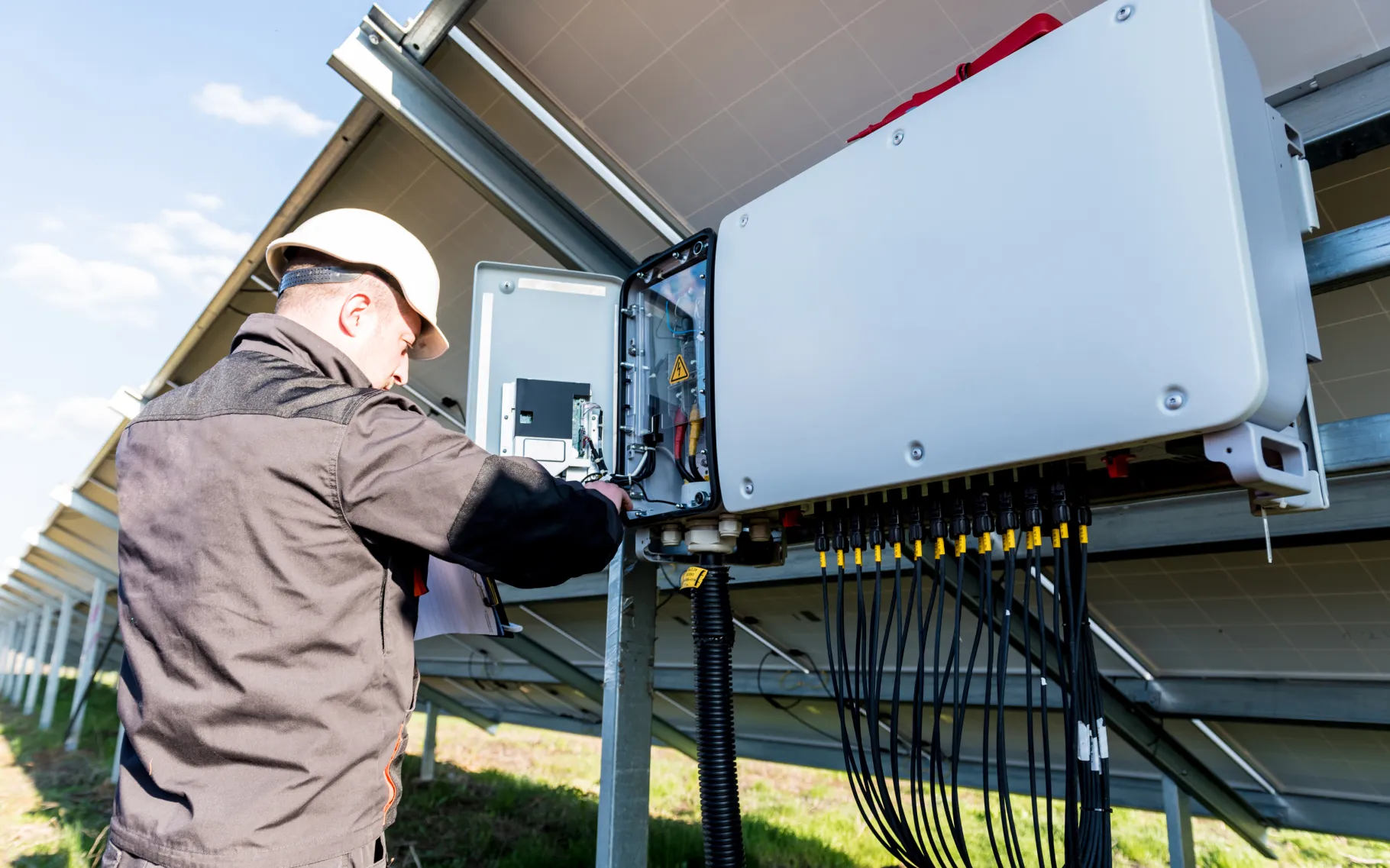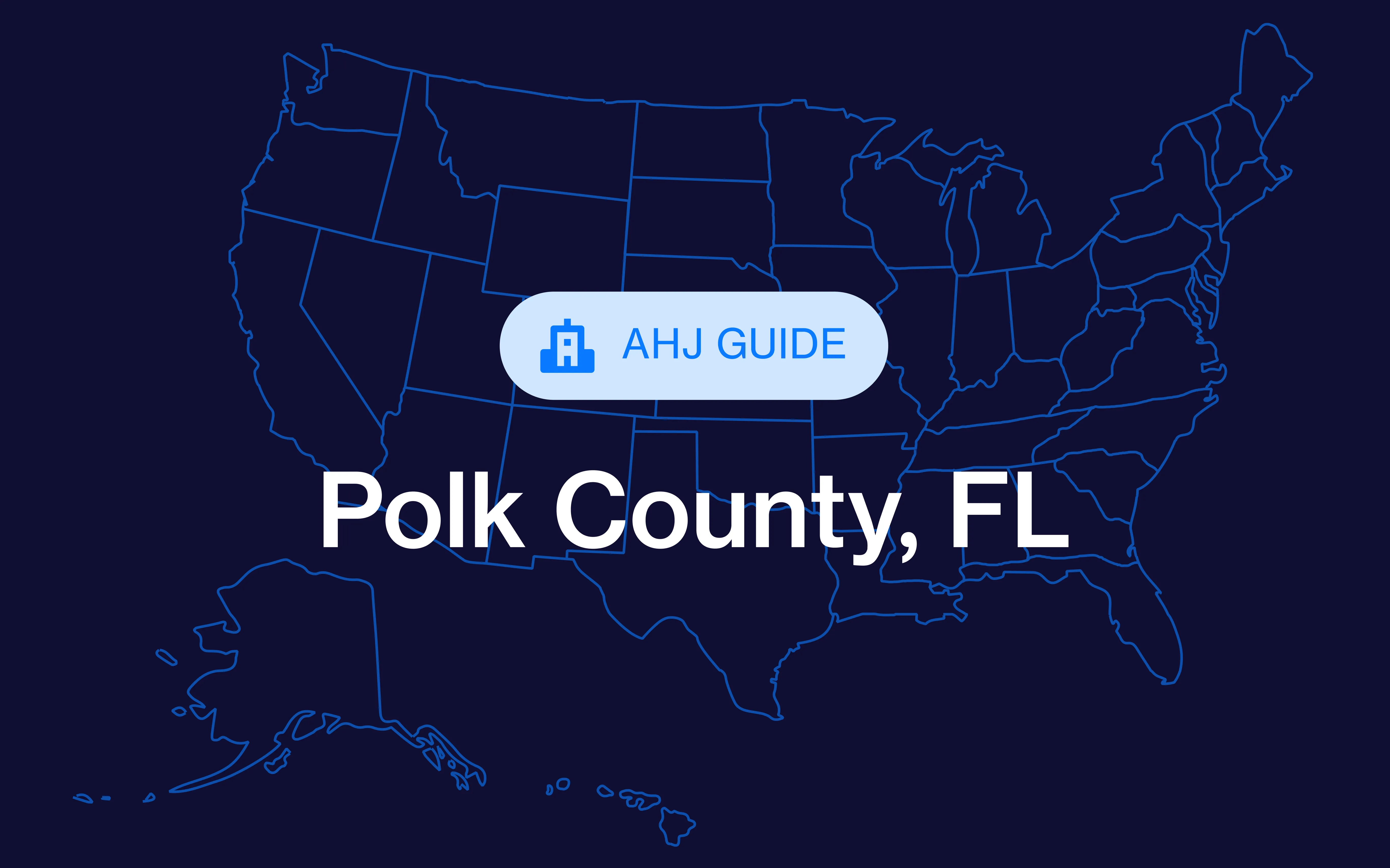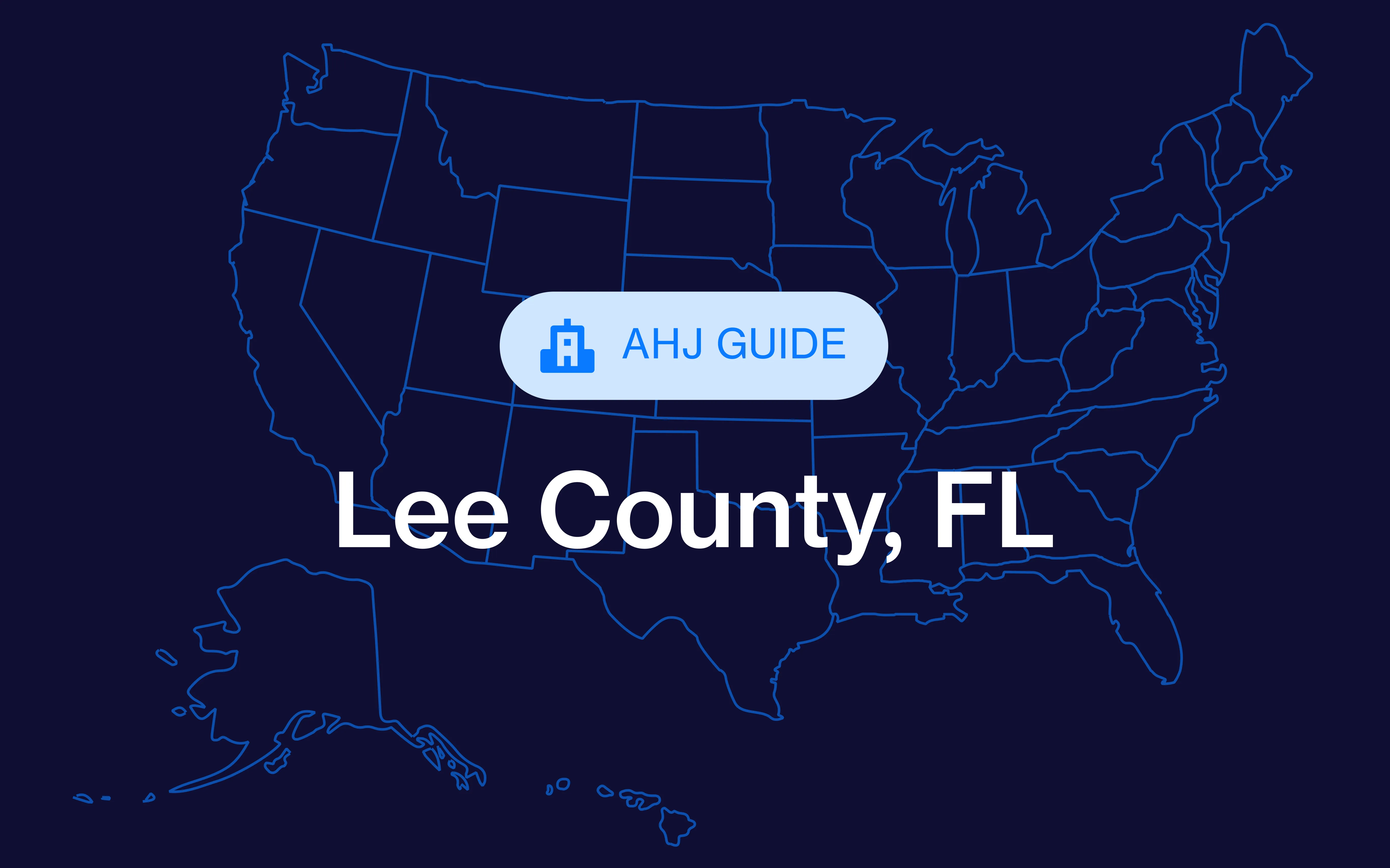Your work as a generator installer is vital. But before installing these critical systems, you need proper permits — and requirements vary dramatically by location and project type.
This guide provides clear, actionable insights into generator permitting: What authorizations you need, when they're required, and how to secure them efficiently to keep your projects moving and your customers protected.
Simplify generator permitting with PermitFlow. Learn more.
First off: Do you need a permit to install a generator?
Yes, you will need a permit to install a generator, particularly a whole-house generator. However, you likely won’t need a permit for a small, portable generator.
Do you need a permit to install a generator transfer switch?
Yes, you will most likely need a permit to install a generator transfer switch. Every jurisdiction is different, so check with your local building department before applying for a permit or assuming you don’t need one.

Why do you need a generator permit?
While often a headache, generator permits are a necessity to ensure that all installations are performed properly and safely.
- Safety and compliance: Generators involve electrical wiring, fuel systems, and combustion engines — all of which pose major risks if not correctly installed.
- Code enforcement: A generator installation must comply with the National Electrical Code (NEC) as well as local building and zoning codes. These codes are designed to ensure safe distances from structures, proper ventilation, and correct electrical connections.
- Insurance and liability protection: Many insurance policies require proof that electrical and mechanical installations, including generators, are properly permitted. If an incident occurs with an unpermitted generator, insurance claims may be denied, leaving property owners exposed to significant liability.
- Resale value and inspections: When selling a property, an unpermitted generator can delay transactions or even cause deals to fall through. Building inspectors will flag unpermitted work, leading to costly corrections.
- Utility interconnection: For standby generators that automatically switch over during outages, local utilities often require additional inspections and permits to connect legally to the electrical grid.
Common generator permit requirements
While specific generator permit requirements vary by location, there are several common requirements that contractors and installers should anticipate when applying for a generator permit.
Local building codes
- Residential vs. commercial zoning: Placement and size requirements differ based on whether the property is residential or commercial.
- Setbacks: Generators must often be installed a certain minimum distance from property lines, windows, and doors to prevent noise and exhaust issues.
- Noise ordinances: Many municipalities have regulations that limit the amount of noise a generator can produce, impacting where and what type of generator can be installed.
Electrical and mechanical codes
- Wiring and fuel lines: Any hardwiring or fuel lines (natural gas or propane) usually require a licensed electrician or HVAC technician.
- Grounding requirements: Generators generally must be grounded according to NEC standards to prevent electrical hazards.
Fire safety regulations
- Clearance: Local fire codes may dictate minimum distances from flammable structures.
- Ventilation: Proper airflow must be maintained to prevent carbon monoxide buildup.
Size and generator type
- Portable vs. standby: Portable generators typically have fewer permitting requirements, whereas permanently installed standby generators almost always require a permit.
- Power output thresholds: Some jurisdictions only require permits for generators exceeding a specific wattage.
When do I need a generator permit?
Generator Permit Requirements
There are some gray areas where it’s not clear if you need a permit or not. Some areas allow limited use of small generators without a permit, but only for short durations or for specific amounts of time. Plus, keep in mind that if the property is part of an HOA, you will have to abide by HOA regulations in addition to any municipal generator regulations.
Always check with all governing bodies before installing a generator.
How to get a generator permit
While permitting processes differ depending on the municipality you’re located in, most generator permitting processes follow these general steps:
- Determine permitting requirements.
- Contact the city or county building department to pinpoint whether you need a permit, and if so, which permit(s) you need. You should also determine what kind of documentation the application requires.
- Submit application materials.
- Prepare and submit a site plan showing generator placement, an electrical diagram, and specifications for the generator model. Do your best to include all required documentation on your first submission to avoid revisions and denials.
- Review and approvals.
- Your application will be reviewed for compliance with zoning, electrical, mechanical, and fire codes by all pertinent city or county departments.
- Inspections
- You may be required to schedule an inspection before, during, and/or after installing the generator to make sure the work matches approved plans and meets code requirements. Consult with your local building department to determine how many inspections are required and when they need to be scheduled.
- Final sign-off.
- Once the installation passes all inspections, the generator can legally be operated.
Pro tip: Using permit management software can significantly streamline the permitting process and help minimize costly mistakes and delays.
Generator permit costs
Permit costs are an important part of your generator installation budget and can vary based on location, generator type, and project complexity. Understanding these expenses upfront helps you avoid surprises and plan accordingly. Here's what you need to know about these costs:
Typical generator permit cost ranges
- Residential generator permits: Typically $50 - $300, with costs varying by location. Rural areas generally have lower fees than urban areas.
- Commercial generator permits: Often higher than residential, sometimes calculated as a percentage of the total project value.
- Multiple permit requirements: Most installations require several separate permits, including electrical permits ($50-$200), plumbing permits for fuel lines ($50-$150), and potentially zoning permits (usually under $100).
Additional cost factors
- Generator size and output: Larger units often require more expensive permits.
- Installation complexity: Adding fuel lines or specialized electrical work may require additional permits.
- Inspection fees: Many jurisdictions include these in the permit cost, but some charge separately.
- HOA requirements: If your property is within an HOA, you may have to pay additional administrative fees for approval before applying for municipal permits.
Pull generator permits faster with PermitFlow
For generator installers, navigating permit requirements can be a hassle. Every day spent waiting for permit approvals means delayed projects, unhappy customers, and revenue sitting on the sidelines. But you can prevent delays and keep projects on track with PermitFlow.
PermitFlow is permit management software that automates the generator permitting process across jurisdictions, handling research, document preparation, submission, and status tracking — all while you focus on installations. With faster approvals and fewer rejections, you'll complete more projects monthly, improve cash flow, and eliminate the headaches of permitting bottlenecks.
Want to complete more generator installations this year? Talk to one of our experts today to learn how PermitFlow can help you pull generator permits faster.








